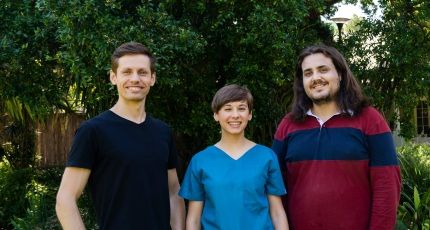SA based HealthLeap raises $1.1M Pre-seed to Reduce Malnutrition in Hospitals

South Africa-based health tech startup, HealthLeap, has raised $1.1M pre-seed to reduce malnutrition in hospitals with clinical AI assistant which focuses on a global healthcare market, starting from the hospitals in the United States.
The $1.1 million pre-seed round was led by deep tech investor Fifty Years. HealthLeap says it will use this pre-seed capital to hire software engineers and data scientists to continue creating smart tools to help clinicians prevent and treat hospital malnutrition.
The startup provides a clinical assistant for dietitians working in hospitals through the use of clinical nutrition to diagnose, prevent and manage these nutritional changes in these patients. It aims to significantly reduce the level of malnutrition among patients. The company says it is building AI-assisted tools for healthcare professionals to better address hospital malnutrition.
“As a clinical dietitian, I saw many patients suffer due to malnutrition being insufficiently addressed in hospitals, partially because clinical dietitians are understaffed, and other clinicians are not adequately trained in clinical nutrition,” clinical dietitian and chief research officer Jemima Meyer told TechCrunch in a chat.
“I wanted to help dietitians with the complex clinical calculations that they constantly tailor to each patient case and their changing medical condition,” she added.
Nigerian Healthtech Startup Field Intelligence Expands into 11 New Cities in Africa
The company’s AI-based clinical assistant product is called NutriLeap. Its mobile app, which is HIPAA-compliant, helps hospital dietitians (and other healthcare providers they will soon collaborate with) with automated clinical calculations and research-backed suggestions. With this, they can determine precise, personalized nutritional needs significantly faster for patients.
“We are predicting optimal treatment steps to ensure patients receive adequate nutrition,” said CTO Botha. “The decisions clinicians make inside our app combined with data from other sources, including an EHR integration, will further improve our predictions.”
The app is currently being used by 50 dietitians in a private beta program. The company said it has a waitlist nearing 1,000 dietitians, pharmacists, and physicians.
Malnutrition in hospitals is associated with 3-5x mortality during a hospital stay. It -50% of patients, but only 5% are diagnosed. HealthLeap says it wants to eradicate hospital malnutrition globally, starting with the U.S. because of the possibilities the new United States Core Data for Interoperability (USCDI) standards unlock.
“We believe in a future where nutrition is uniquely optimized for the health of every person. We want to help make nutrition data-driven for everyone, and we’re starting with the people that need it most urgently: hospital patients,” said the CEO Josiah Meyer. “One important data source that got unlocked is Electronic Health Record data due to the USCDI standards.”
The USCDI standards, approved in July last year, allow health tech organizations to access previously unavailable health data sources. And with the pandemic massively accelerating healthcare professionals’ adoption rates of digital tools, HealthLeap is poised to capture a significant market share with its software.
Aside from helping clinical dietitians and other healthcare providers identify patients at risk of malnutrition, HealthLeap also prescribes daily quantities of an oral, tube, and IV feeding to the patient’s ever-changing needs. The company said it treats patients even after discharge.
“It’s a tragedy that so many die needlessly because they don’t get the nutrition they need while in the hospital,” said Fifty Years founding partner Seth Bannon in a statement. “By addressing hospital malnutrition in a scalable way using machine learning, HealthLeap will save dietitians time, save healthcare providers money, and most importantly save patients’ lives. That’s easy to get excited about.”
